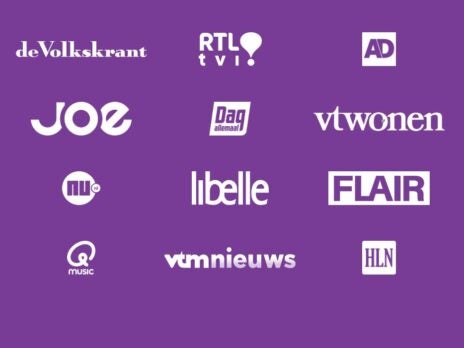
Can publishers cope with being software companies?
This was the question experts addressed at Press Gazette’s Future of Media Technology Conference on a panel about the role tech plays in finding new revenue streams.
Senior leaders from The Times, Haymarket and the Mail shared their insights on using tech to reduce subscriber churn, sell corporate subscriptions and introduce a partial paywall.
Payal Sood, director of technology at Haymarket Media Group which has built new products as it moves away from a reliance on advertising revenue towards subscriptions and corporate customers in particular, said she likes “going for a build option” where possible.
“For Haymarket, we have built our own CMS,” she said. “Of course, we are not a software company, but we partner with the software developers to build the way we would like things to work.
“The CMS is quite core to create our content and give the editorial the workflow they would like and it also gives us the scale because at Haymarket we keep relaunching our brands, we keep acquiring new brands, and we do launch new brands as well.
“If we are on somebody else’s platform then it’s difficult, and sometimes it’s not even economically viable, because you are just launching a new brand which may not be generating that much revenue to start with, but you’re paying the same amount in the SaaS [software as a service] platform.”
Sood added: “We have got a single platform and our smaller brands also get the same enriched platform features which our bigger brands are getting. So for us, it makes more sense to keep building and keep upgrading that CMS.”
Sood said the key principle at Haymarket for answering the build or buy question is: “If it is core to your business: build, or at least have the complete control over your systems and your data. You don’t want somebody sunsetting the system you are working on and the customer data platform you have just migrated.”
‘Having great partners is the way you get success’
Mail product director Simon Regan-Edwards said: “My view: always buy, although we’ve built quite a lot of stuff… But I would say look for great partners.
“Having great partners who have invariably done this before you, and working closely with them, is the way you get success.”
In response to Sood’s point about software businesses sunsetting a product, Regan-Edwards responded that “you can also have internal employees who give three months’ notice and suddenly you’ve got an unsupported platform. So there is a downside.”
But he agreed that the crucial point is deciding “what is differentiated and core to your business, and then yes, you may have to go and build that yourself if you’re big enough and it can be supported, but that total cost of ownership is often higher than you think it is.”
Regan-Edwards also emphasised the importance of a “cross-functional, co-located working team within editorial”.
When rolling out the Mail+ partial paywall on Mail Online at the start of the year, making about ten to 15 stories a day available to paying subscribers only, Regan-Edwards said they brought together marketing, product and tech people to sit together with the journalists in the newsroom.
“I think having that connection between editorial, product and tech, working directly with your preferred partners – that is the glue, that is the secret sauce.”
Times focus is on churn reduction and mobile performance
Edward Roussel, head of digital at The Times and Sunday Times, agreed on the importance of cross-functional teams.
He said the success of The Times is “at the intersection of three things. It’s, first of all, brilliant journalism, so thinking very deeply about every story needs to be distinctive and differentiated and needs to perform well on a mobile device.
“Secondly, I think it’s about the newsroom working very closely with the product team and with the marketing team, because if that connective tissue isn’t working well, it’s like a three-legged stool. If one element doesn’t work, then you’re not going to be able to continue to build your audience and build your subscriber base.
“And I think the most important thing from a business point of view, is churn reduction. So what are the elements that ensure that you can retain those hard won subscribers?”
On that point he revealed there is a “very strong correlation between daily habit, getting people to come back every day, if not every day certainly every other day, and the propensity to churn. So if people come back more than 16 times in a month, what we see in our data is propensity to churn drops off dramatically.
“And so to that end, we work very hard on getting people to use our app, because if you use our app, propensity to churn drops by about 50%.
“We work very hard on getting you to subscribe to a newsletter because if you subscribe to a newsletter, the propensity to churn drops by about 11%.
“And we look at other ways, like puzzles is a big thing for us, and if you’re what’s known as a solver and do the crypto crossword, the propensity to churn drops by 22%.”
The Times has “completely modernised” its newsroom including a new website CMS, Roussel revealed, which includes elements like AI headline suggestions and easier mobile optimisation via dragging and dropping elements of a story.
He said this meant people can “now focus on the journalism, as opposed to manipulating complicated bits of software”.
But of the creation of this tech, Roussel said: “We’re very much of the view that we should not be a software company.
“Candidly, when we were trying to do our own software, we were really bad at it, and that was clarifying. So we select tools that we then integrate and augment.
“But that in itself is a skill by selecting the right providers, the right suppliers: augmenting their off the shelf products to make them more relevant to how we operate is in itself a skill and not to be dismissed and we need very talented technology and product teams to be able to do that.”
Publishers ‘need to decide if they want to be software companies’
Stewart Robinson, managing director of web and app software company Full Fat Things, said publishers “need to decide whether they want to be software companies.
“It’s a bit scary to become a software company and to grow all that skill. And there are many phrases like ‘we are all developers now’ as we look to just embrace every technology that led you to do more and more and more. But is it something core to the business? Is it something that they really want to do? And I would say that as someone who sells software, but I genuinely think there’s something there. “
Robinson added: “I think the great challenge for the publishing industry is having really good glue between your systems, not just making them connect, but making your data flow across all of your systems in a meaningful way.”
Email pged@pressgazette.co.uk to point out mistakes, provide story tips or send in a letter for publication on our "Letters Page" blog







